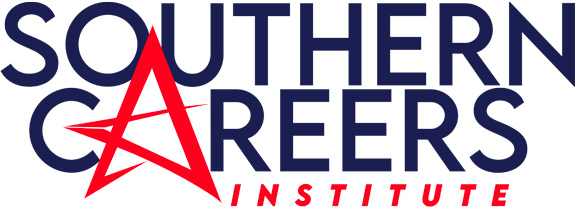Procrastination is part of the human condition. Almost everyone can recall avoiding a pressing task for one reason or another. Roughly one in five adults struggles with chronic procrastination, and nearly ninety percent of workers admit they procrastinate at least one hour each day.
While an occasional delay in ticking off the items on our to-do lists doesn’t hurt us much, procrastination’s cumulative effects can take a toll over time. Beyond lost productivity at work, procrastination, if left unchecked, can impact our quality of life. Opportunities pass us by, deadlines get missed, and doors close.
Understanding our underlying reasons for procrastination is the most powerful way to overcome its influence on our lives. Research suggests there are many reasons why we put off what we could do today for tomorrow. Our procrastination pitfalls vary widely. Some of the most common reasons we tend to procrastinate include the following:
- Fear we lack the necessary skills.
- We underestimate the time required to complete a task.
- Chronic exhaustion, sleep deprivation, or other health concerns can impact our motivation.
- Perfectionism can lead us to avoid task completion.
- Setting small goals and prioritizing are often overlooked parts of achieving our big-picture plans.
- The increased use of social media and other technology can cause us to lose track of time.
Once we’re clear on why we’re hitting the pause button so often, we can enlist the most effective strategies to spring back into action.
Consider Overall Health
We all feel better after a good night’s sleep. Research confirms that sleep significantly impacts our productivity, mood, and ability to focus. When we toss and turn, we procrastinate, too, since we’re too tired to perform. Create a plan to get your best night’s sleep. Set a sleep schedule and stick to it every day, and consider seeking medical advice if you’re hitting the snooze button too often from chronic exhaustion.
Untreated stress can further impact sleep along with our overall health. Learn to manage stress mindfully. Include movement in your daily routine. Eat a nutritionally rich diet, and take time to recharge, preferably in the great outdoors. Studies show that just a few minutes outside each day can positively impact our overall well-being and help us overcome procrastination.
Overcome Fear by Building New Skills
Sometimes we are afraid we lack the necessary skills to meet a goal. If self-doubt is the culprit standing in our way, we can confront this inner critic. Some good habits for overcoming self-doubt include:
- practicing self-compassion
- bringing to mind past achievements and challenging negative thoughts
- avoiding comparisons to others
- surrounding yourself with supportive people
If new skills are needed to get to the next level, seek those out. Be willing to ask others who’ve achieved similar goals how they did it. Then, if a new course of study is needed, like one of the many programs offered at Southern Careers Institute, pursue it. Education is a powerful way to gain necessary skills, avoid feeling stuck, and ultimately overcome procrastination. It can help you get where you want to go. Stay curious about all the possible paths before you, and be willing to explore each next step.
Productivity, Prioritizing, and Time Management
It can be challenging to manage our limited allotted time each day. Responsibilities press in from all sides, each demanding our attention. We can get lost in the push and pull of it all; before we know it, another day has passed with tasks left undone. It’s easy to give in to procrastination when it feels like we’re just spinning our wheels.
Practicing intentionality with how we spend our time is how we find our way out of this trap and once and for all, overcome procrastination. We can gain momentum and get back onto the path of productivity by implementing The Eisenhower Matrix. Invented by President Dwight Eisenhower, this powerful tool can help us effectively prioritize by dividing tasks into four possible categories.
Any job that we deem urgent and essential is attended to right away. Tasks that are not urgent, though still necessary, get scheduled for another time. Less critical jobs can be delegated to someone else if they are still essential. And we can dismiss unnecessary, unimportant tasks altogether. This loose yet flexible framework can help clear the mind when deciding how to use our time best.

Perfectionism and Goal Setting
A French proverb tells us that perfectionism is the enemy of good. This all-or-nothing approach can cause paralysis, as anything deemed not good enough must be continually reworked and reconsidered. Perfectionism and procrastination go hand-in-hand, as the inability to meet an impossibly high standard leads us to avoid work. If perfectionism is troubling you, some time-tested strategies include:
- clarifying the level of perfection required for the task
- communicating concerns openly
- soliciting feedback about the work in progress
- embracing the idea that some failure along the way is part of learning, growing, and succeeding
To avoid getting caught in the trap of perfectionism and overcome procrastination, try setting small, achievable goals along the way. Mini-goals, once achieved, can be celebrated and used as motivation for the next step, especially when pursuing a long-term plan.
Using Technology Wisely
In our society, opportunities to get lost in some form of technology abound. We plan to scroll through social media for a few minutes and see an hour or more has passed. We open our email, planning to write just one, and notice five others we must address immediately. Digital distraction, the ability of our devices to hold our attention, is powerful. It can keep us from getting on with more necessary tasks or even discourage us as we see perfected images of others scroll by.
Awareness is the first step in helping us gain a more intentional relationship with technology. If you don’t like how much your devices are in the driver’s seat in your life, start small. Monitor your usage and dial it back. It can be as easy as keeping your phone out of easy reach or turning off the irresistible notification noises for a portion of each day.
Next Steps for a New Career
If you’re considering a new career, there’s no need to procrastinate about your future. Southern Careers Institute will help you achieve your career goals. With a focus on employer-tailored training, we proudly offer 20 programs and 40 industry-preferred certifications. Contact us today to learn more about how we can help you get where you want to go.
This article was published on: 02/15/23 6:25 PM
* SCI does not guarantee employment or a starting salary upon graduation, completion, or withdrawal from SCI. As an accredited post-secondary institution, SCI has various federal financial assistance programs available for students who qualify and are enrolled in SCI programs. This does not apply to seminar students.
GI Bill® is a registered trademark of the U.S. Department of Veterans Affairs (VA). More information about education benefits offered by VA is available at the official U.S. government Web site at http://www.benefits.va.gov/gibill.

